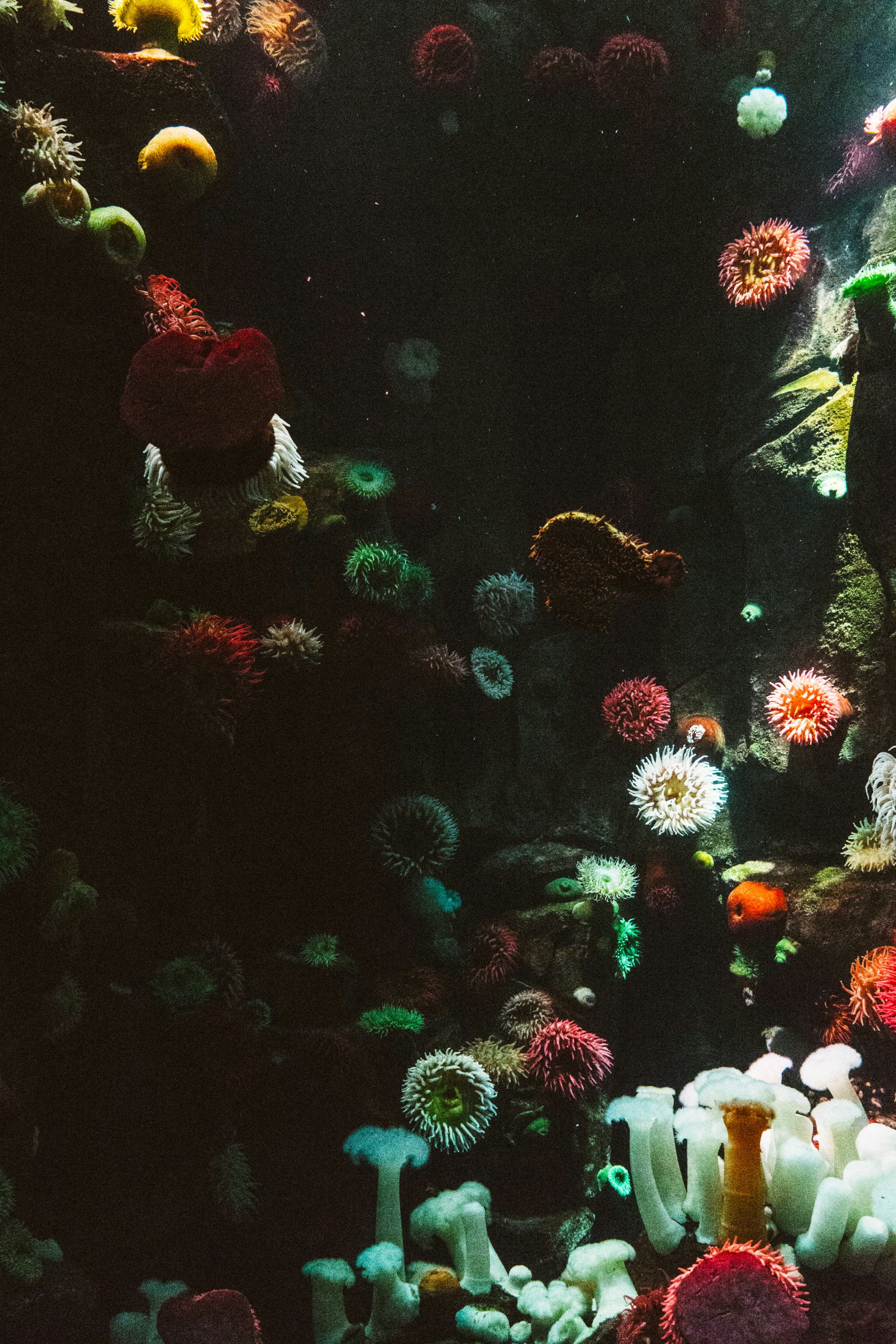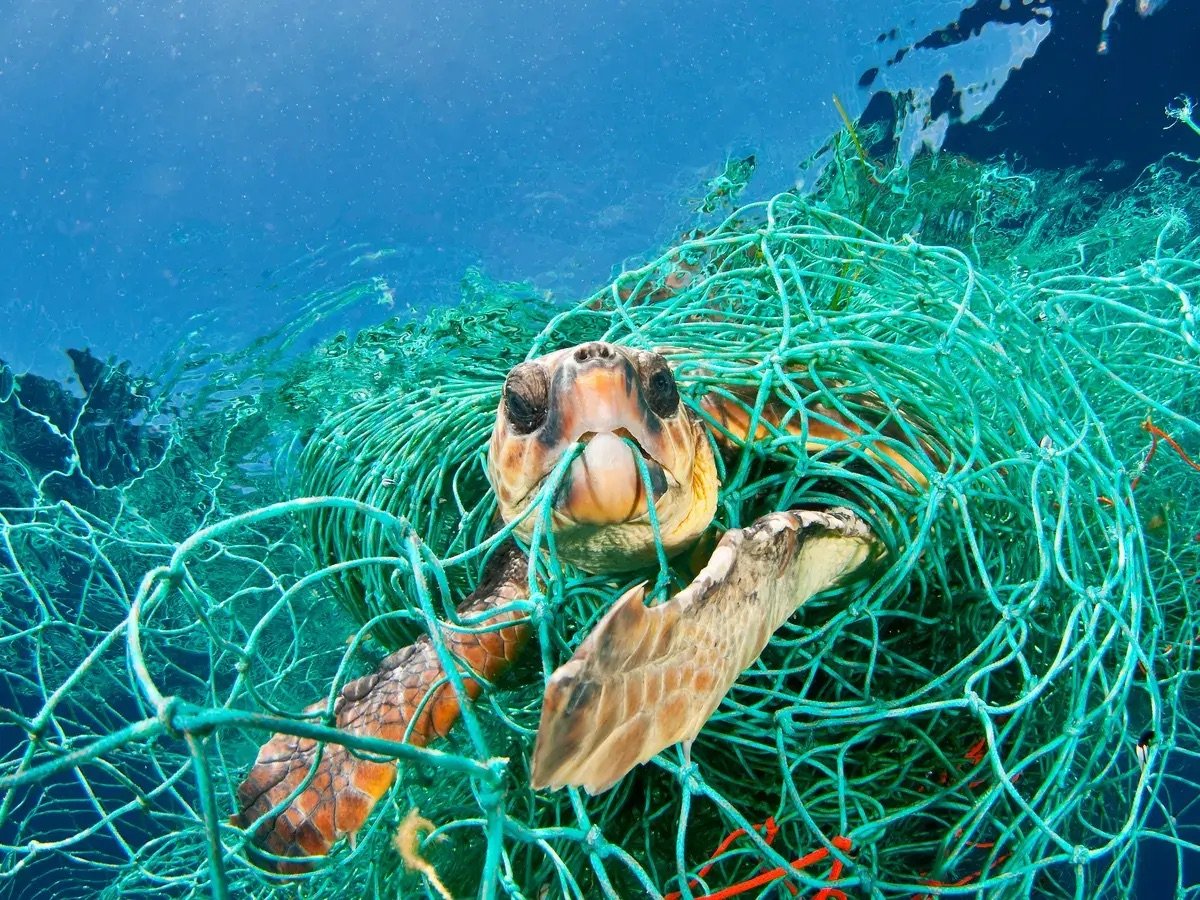
The State of the Ocean & Coasts in 2025
(it’s not great).

More than 71% of the Earth’s surface is covered by the ocean, which is also home to over 90% of earth’s living species, from plants and fish to reptiles and mammals.
40% of humans also live within 100km of the ocean, and more than 3 billion people rely on the ocean for both their food and livelihood. The ocean also produces half of the oxygen we breathe.
It’s critically important to life on earth, and under threat like never before.
While absolutely critical to life on earth, and functioning as the lungs of our planet, our oceans, waterways, and coasts are facing an unprecedented number of issues that threaten the health of everything living in and near the oceans.
Human activities in particular are driving this across everything from ocean noise and vessel strikes to the climate crisis, overfishing, and the more than 80% of marine pollution that comes from land-based activities. From coral bleaching to sea level rise, entire marine ecosystems are rapidly changing, and we’re only just beginning to grapple with the consequences.
We’re not going to sugarcoat this - the situation is bad and getting worse. But there are things we can do to start to turn the situation around, and we can start today.

We think nature-based solutions are one of the most promising, under-resourced approaches to fixing the myriad problems facing our oceans. Here’s why.
-
Warming seas are causing changes in ocean chemistry and species die-offs, among other impacts.
Rewilding helps mitigate a number of these issues, for example by boosting the resilience of species to warmer temperatures through assisted breeding techniques, restoring elements of ecosystems that have already been damaged, and capturing carbon to help slow the macro effects of the climate crisis.
-
Rewilding in particular offers incredible benefits around carbon capture. Mangroves and salt marshes, for example, remove carbon 10 times faster (and store five times more of it) per acre than tropical forests. It’s some of the most effective carbon removal on earth.
-
Rewilding makes coastal communities more resilient to the impacts of climate change. Reefs, dunes and marshes break waves, absorb storm surges and blunt winds, greatly reducing risk to people and businesses. Mangroves in particular play a crucial role in protecting coastal communities from natural disasters, and their intricate root systems help stabilize the coastline, reducing erosion and buffering against storm surges and tsunamis.
-
Biodiversity has declined by nearly 70% since 1970 and biodiversity loss threatens us all. Indigenous peoples and island communities have known for centuries that everything is connected though, and healthy marine environments depend on healthy coastal communities. Emerging scientific research supports this, showing direct benefits to ocean ecosystems and communities following island restorations.
In one incredible recent study, eight islands were chosen to be rewilded from ridge-to-reef as part of the Island-Ocean Connection Challenge. The healthier islands saw a corresponding recovery of connector species, like seabirds, with which came the return of oceanic nutrients to the land, which in turn nourishes the marine environment. These restored islands have up to 250 times more nutrients, producing a 50% increase in fish, and studies have shown coral reefs can grow up to four times faster, sustaining island communities and building tremendous climate resiliency.
You can learn more about the Island-Ocean Connection Challenge and these first island-ocean ecosystems at www.jointheiocc.org.
-
According to the Food and Agricultural Organisation (FAO), the fraction of fish stocks that remain biologically sustainable has fallen from 90 per cent in the 1970s to less than 66 per cent in recent years – and the continuing fall is putting future food supply at risk.
In one example, thanks to a no-fishing-zone (NFZ) pilot project set up in Turkey’s Gökova Bay in the Aegean Sea, local fish stocks have increased 10-fold, spilling over into the surrounding fishable waters.
In another, Bay Foundation, a California non-profit organisation that works with Urchinomics, has so far restored 55 acres of kelp forest, providing a breeding ground for more than 700 species of marine life.
-
Rewilding has a wide range of economic benefits, including in the jobs themselves, but also in increased tourism, more sustainable fishing and farming sectors, enhanced property values, new business opportunities and new sectors of business.
-
Nature-based solutions are among the least harmful and most effective solutions to the climate crisis that also suffers from the least unforeseen consequences.
-
Rewilding, particularly by working to regenerate shellfish populations, offers significant benefits to water and ocean health.
How we help.
(and how you can too).
There are environmental programs all over the world, of tremendously varying quality. We search out, personally visit, vet, and showcase the very best programs doing the most effective kinds of work (primarily around nature-based solutions), and verify that they’re doing it in an ethical way.
We all want to help but it can be really hard to know where to start and who you’re dealing with. Our role is to make that as easy as possible, and whether you want to help fund projects or donate your time, we want to make sure you have as much impact as possible.




